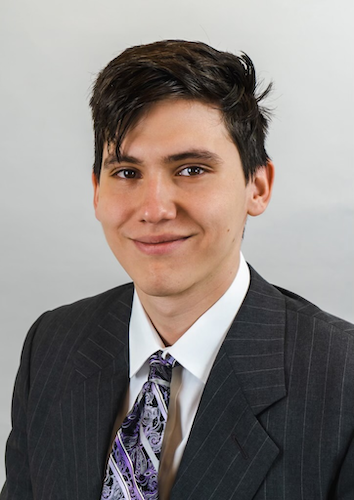LSU College of Science Junior Named 2022 Goldwater Scholar

Cale Locicero, LSU Goldwater Scholar.Photo Credit: LSU
BATON ROUGE, La. — LSU chemistry junior Cale Locicero brings the total number of LSU students named a Barry M. Goldwater Scholar to 39.
“The LSU College of Science is proud of Cale for this impressive achievement,” said College of Science Dean Cynthia Peterson. “He represents the quality of undergraduate research at LSU and the incredible support our faculty members provide for our students.”
“I am privileged to be Cale’s faculty mentor,” added Associate Professor of Chemistry Rendy Kartika, who also serves as LSU’s Director of Undergraduate Studies for Chemistry and acted as Locicero’s faculty nominator for the scholarship. “I am extremely proud of him. Cale’s potential is boundless. His future in science is bright. I have no doubt that Cale will contribute to addressing pressing problems in our society with his work in science.”
Goldwater Scholars are awarded a maximum of $7,500 per academic year. The scholarship, itself, was established in 1986 in honor of former U.S. Sen. Barry Goldwater. To be eligible, students must be sophomores or juniors who intend to pursue a research career in natural science, mathematics or engineering. This year’s Goldwater Scholars include 45 mathematics and computer science majors, 64 engineering majors and 308 natural sciences majors.
“(When the surprise wore off), I just felt really thankful to have people that pushed me to actually apply for this scholarship,” said Locicero, who is both an LSU College of Science chemistry student and an Ogden Honors College student. “This just pushes me to go the next step; it’s that bit of encouragement.”
Locicero, a native of Metarie, La., is a research ambassador and the vice president of faculty relations for the LSU Discover Undergraduate Research Program. Additionally, he has worked closely with Kartika conducting research focused on developing a refined, stereoselective method for creating α-Quaternary α'-Hydroxyketones. The group develops novel synthetic reactions for the creation of molecular architectures that are relevant to medicinal areas, such as pharmaceuticals and therapeutics.
“The ultimate goal is to enable the exploration of unknown chemical space in the pursuit of drug discovery,” said Locicero. “You need ways to access new drug candidates, and that’s what we work on, you know, because organic chemistry is a basic science.”
“It is just beyond rewarding to see Cale developing from learning to perform basic lab techniques to him coming up with independent ideas on his research project,” Kartika said. “Cale is impacting research in my lab. For instance, he will become a first co-author in a research manuscript that we hope to publish in his senior year. His data will also serve as one of the preliminary results to support a research proposal that I am currently preparing.”
While Locicero said he did not know exactly which path he would take academically upon graduation, he said he knows a PhD in chemistry is likely.